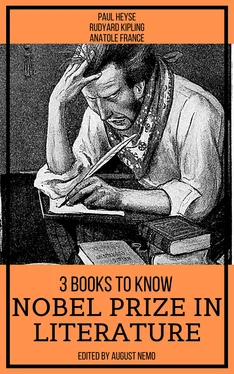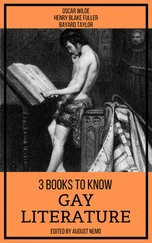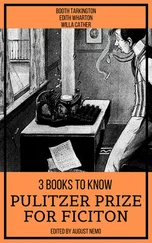"The first four formulæ, and the rule of three."
"No joking. You are a thorough mathematician. I will get you a position in a life insurance company, where they need some one for their estimates of probabilities. Five hundred thalers at first. You need say but one word."
"Rather three, my faithful Eckhart: Thank you, kindly. I can not endure the atmosphere of an office. But seriously, my dear preserver of mankind, don't give yourself any trouble about me. I am incorrigible. Every German must have a whim. Mine is to belong exclusively to myself, shake as many nuts from the tree of life as I like, and waste as much time as I can spare in cracking them and getting at the kernels. To make a career is an occupation that robs one of a great deal of time, and it is the same with the effort to become a millionaire in a respectable way. Both, therefore, I must renounce, and since I have for either as little talent as inclination, and can get along for a time in this way, why should I fly into a passion because the Berlin cows have deteriorated as much in the fabrication of milk as Prussian political philosophy has deteriorated since the days of Father Kant? Except on occasions when, by an Epicurean like yourself, unnatural desires are created in us, we want for nothing in our 'tun,' and, moreover, have something put aside for a rainy day; have we not, Balder?"
The doctor was about to make some reply, but controlled himself, and seized his hat. "Adieu!" he growled, and went toward the door, but paused on the threshold.
"You will allow me," he said harshly, "as I still have charge of you, to send you some medicine from my own pharmacy. I received a gift of some excellent Bordeaux from a wine-dealer, on whom I performed a very surprising cure, I will send you some on trial, and if you don't drink half a bottle every noon—Balder may content himself with a glass—I—"
"Will show me no farther friendship? Better not say that. It would be a pity: for your sake, because without our society you would sink completely into empiricism and gluttony; and for ours, because we should be compelled to deny ourselves the luxury of consulting a physician. No, old fellow, I thank you very kindly for your philanthropic design, but it is wiser for us to continue to cut our coats according to our cloth."
"And these people wish to be elevated above ordinary prejudices!" exclaimed the doctor fiercely, putting on his hat. "If you really were so elevated, you would not be too proud to accept a few pitiful drops of wine from an old college friend! Go, you are perfect fools with your idealism!"
"And you are on the way to become as famous a doctor as old Heim. At least you already have the needful roughness!" laughed Edwin.
The doctor heard him no longer; he had slammed the door and was noisily descending the stairs. Balder looked at his brother.
"You ought not to have refused," said he. "He means kindly, and he is undoubtedly right: our diet is not fit for you."
"So you, too, are beginning to scold," said Edwin, drinking the remainder of his milk as if it were the most exquisite nectar. "But the trump of doom would not disturb the serenity of my soul to-day. I am in exactly the phlegmatic, abstract frame of mind, to which the most difficult problems seem like child's play. It is a pity I have nothing harder to elucidate than how it comes to pass that a crazy man can say such clever things in his dreams, and yet on awaking be just as mad as before."
"What do you mean?"
"I have been most dutifully dreaming of the acquaintance I made yesterday; you remember, child, la belle Chocoladière. I discovered, God knows how, that she was the daughter of a Polish countess and a French valet de chambre; a thoroughly ignorant, vain, and not over-virtuous creature. As she made merry over my defective French, I quietly began to explain how grateful she ought to be that a sensible man conversed with her at all. Then I talked long and very impressively about the dignity of man in general and philosophers in particular; something after the style of Wieland's sages, and she, after at first looking as if she were grieving over her weaknesses and sins, suddenly began to laugh loudly, danced around the room—in the style of the rope-dancers we saw yesterday—hummed French songs of by no means the most decorous nature, and altogether conducted herself in such a manner that I grew more and more angry, and at last told her to her face that I should consider myself the most contemptible fool and weakling on earth, if I allowed her little nose and black eyelashes to turn my head an instant longer. She now became very haughty, I still colder and more bitter, she more bacchanalian, and I was just in the act of jumping out of a low window into a beautiful and spacious garden, when she coaxingly passed her hands over my face, and tried to smooth the angry frown from my brow; then I awoke, and quickly perceived that notwithstanding all the wisdom I had possessed in my dream, I had not become one whit the wiser than I was when I went to bed.
"But don't take the matter so much to heart, child," he continued, as Balder remained silent. "I can assure you that a hopeless passion is no such terrible misfortune. I am perfectly positive that I shall never see her again, but how long it will be before I think of something else, I can't say. Yet it is one of the most delightful experiences—this gentle consuming fire, this sacred defencelessness, this introspection, joined to the consciousness of external impressions; it is the true, immanent, and transcendent contradiction, which is the veritable secret of all life, and of which man, with his accustomed eminently respectable but imperfect knowledge of our being, is seldom so keenly conscious. Some day, child, you too will experience it, and then for the first time you will fully understand what I mean. The head does not appear to work at all; the mill of ideas is stopped; it has no more grist to grind. Very different nerve-centres appear to have assumed control, and when I have overcome the first sense of strangeness, it will be a very interesting psychological task—"
Here the door was thrown open, and a new visitor interrupted our philosopher's attempt to make a virtue of necessity, and at least to render useful to the cause of science, the sorrows of his heart.
––––––––

The new comer was a tall and very broad-shouldered young man, who carried a travelling-satchel and a shawl thrown over his shoulder; unceremoniously tossing a faded brown felt hat on Balder's bed, he nodded, and smiling called out a "good morning" to the brothers. The first impression made by the ash-colored face, furrowed by several scars, and the somewhat crooked mouth, was not particularly favorable. An expression of bitterness or malice dwelt about the strongly cut lips, and the teeth, which, in speaking, were fully revealed, increased the fierce, unamiable look. But when the countenance was in repose, the melancholy expression of the eyes predominated over the more ignoble features, and the brow beneath the short bristling hair seemed to have been developed by grave mental labor. His movements were restless and impetuous, and his whole attire was that of a man who thought little of his personal appearance, though his stately figure was well worthy to command attention, had but a little care been bestowed upon it.
"Why, Mohr! Heinrich Mohr! What wind has blown you to us again?" cried Edwin, advancing to meet him and cordially shaking hands.
"The same thoughtless whirlwind, I suppose, that tosses all the sweepings of humanity into confusion," replied the other. "It is only those individuals, who possess a certain specific weight, that do not change their places without special cause. You, for instance, I find in the same old house where I left you three years ago. And, if I must be honest, the only sensible reason I can give for venturing out of my dull little birthplace back to this huge, clever, mad Berlin, was the desire to see you again. After all, you have the most friendly faces, and that you really seem to feel a sort of pleasure in being troubled with me again, proves that you are still the same as of old."
Читать дальше













